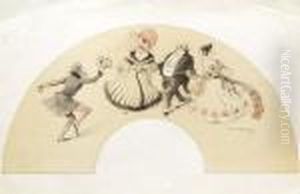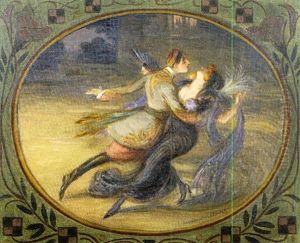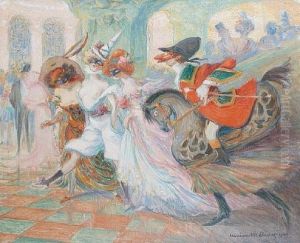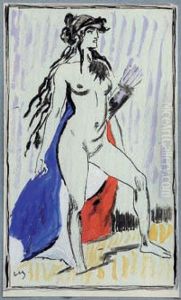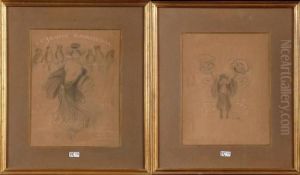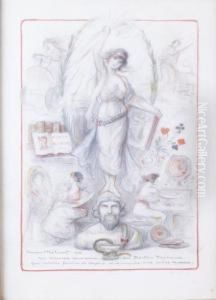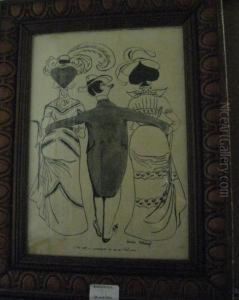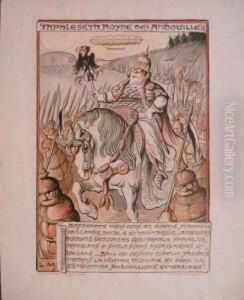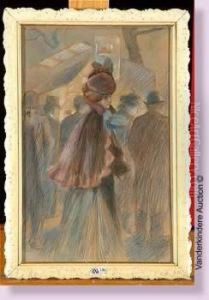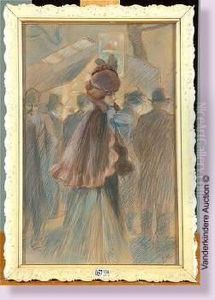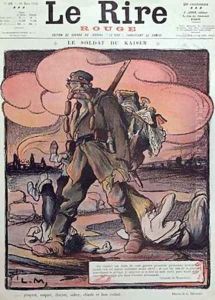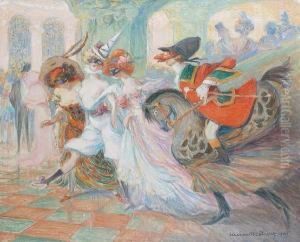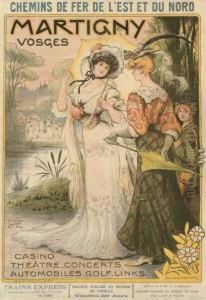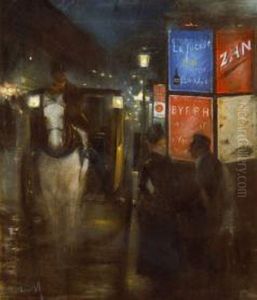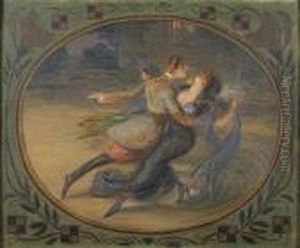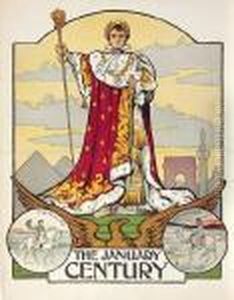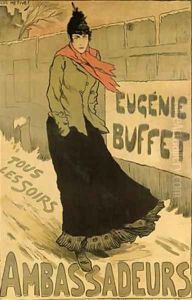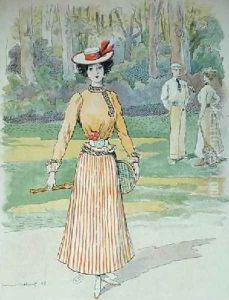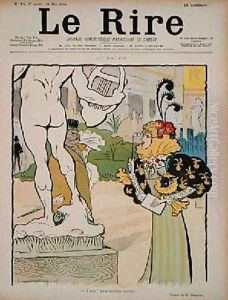Lucien Metivet Paintings
Lucien Métivet, born in 1863 in Paris, France, was a distinguished French illustrator, poster artist, and caricaturist, known for his contributions to the vibrant Belle Époque period. He studied at the École des Beaux-Arts in Paris, where he was a contemporary of notable artists such as Émile Cohl and Henri de Toulouse-Lautrec. Métivet's work is characterized by its wit, humor, and distinctive style, which made a significant impact on the art of illustration and poster design during the late 19th and early 20th centuries.
Métivet initially gained recognition for his illustrations in popular French magazines and newspapers, such as 'Le Rire' and 'L'Assiette au Beurre', where his satirical and comedic sketches won him considerable acclaim. He was also involved in the creation of posters, notably contributing to the advertising world with vibrant and eye-catching designs that were innovative for their time. One of his most famous works is the poster for Érik Satie's ballet 'Uspud', which exemplifies his skill in combining text and image in a harmonious and engaging manner.
Beyond his contributions to magazines and poster art, Métivet's work extended to book illustrations, where his unique style continued to flourish. He illustrated several books, bringing to life the characters and scenes with his distinctive blend of humor and artistry. Despite the popularity of his contemporaries, Métivet managed to carve out a niche for himself in the competitive art world of Paris, remaining influential among art lovers and collectors.
Lucien Métivet's legacy is one of innovation and humor, contributing a unique voice to the art nouveau movement and influencing the direction of French illustration and poster art. His ability to capture the essence of the Belle Époque era, with its mix of sophistication, humor, and artistic experimentation, has ensured his work remains celebrated. He passed away in 1932, leaving behind a body of work that continues to be admired for its creativity, wit, and artistic merit.
